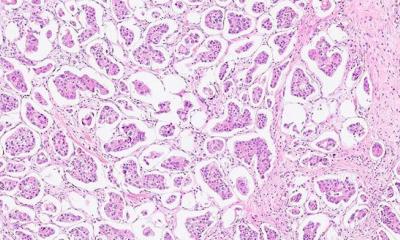Lab medicine is on the move, but where exactly is it going?
Facing the fundamental changes that laboratory medicine is undergoing, in early June Roche Diagnostics Deutschland GmbH invited 50 high-profile speakers to a six-day symposium to discuss current research, economic and diagnostic issues in lab medicine with a professional audience.
Report: Karoline Laarmann


‘Quo vadis lab medicine?’ on which a panel discussion at the Roche Symposium 2011 was pinned, certainly presented a lively highlight that attracted representatives from private labs, hospitals, financial service providers and manufacturing. The event’s patron, Professor Rudolf Tauber, director of the Central Institute for Laboratory Medicine and Pathobiochemistry at Charité Berlin and, this May, President of the IFCC WorldLab held in Berlin, opened the discussion by outlining the three major challenges laboratory medicine currently faces Professor Rudolf Tauber opened up the question of where lab medicine is heading by first addressing socio-economic factors. Considering demographic developments and an increasingly well-informed public on medical options, a more proactive approach in preventive medicine and more personalised therapies are needed, he said.
His next point was that lab medicine must respond to healthcare developments such as the increase in conditions, for example diabetes mellitus or neurodegenerative diseases and the emergence of previously unknown conditions in the last few decades. ‘Medical research contributes to our understanding and handling of causes of diseases and linkages between diseases on the level of molecules -- even atoms. However, we must be able to translate these insights in quality-assured healthcare services.’ While professional competence and knowledge in lab medicine are stunning, he added, ‘we are well aware of the fact that much of our medical discipline is still uncharted territory.’
The third challenge are new technologies, he said, and is convinced that next generation sequencing, today an analytical method applied only in advanced research institutions, will soon become a daily diagnostic routine. Drivers of the technological development, the professor predicted, will be miniaturisation and telemedicine.
Privatisation on the lab market
Professor Jonas Schreyögg, Director of the Department of Health Economies at Hamburg University, outlined the structural makeup of the German laboratory market.
Unlike other healthcare divisions, laboratory medicine is not a growth market in the conventional understanding of that term. While an estimated 65% of medical diagnostic services are currently provided by laboratory medicine, the number of labs in Germany continues to decrease. The business segment ‘outpatient facilities’ is particularly telling: a handful of lab networks account for a market share of 55%.
This concentration of revenue – and of market clout – is a result of the privatisation of labs, Prof. Schreyögg explained. Because materials and labour costs make up more than 50% of the overall costs in a laboratory, lab mergers offer very high potential for efficiency gains, for example due to discounted purchasing prices and the use of technology. Privatisation is a promising strategy above all in areas with a high degree of standardisation and specialisation.
In view of these trends, quality assurance efforts in laboratory medicine will have to be intensified. To ensure the provision of healthcare services for the entire society the lab ownership structure has to remain transparent, he advised.
At the same time privatisation is known to drive innovation and performance efficiency. Thus private actors tend to be the trail blazers who demonstrate how restructuring can be handled successfully. Prof. Schreyögg‘s take-home message: ‘Privatisation increases efficiency in the healthcare market. However, public players have learnt from private players, which means that efficiency gains in the wake of privatisation will decrease in the future. Consequently the privatisation wave will also abate.’
Prediction and prevention
Early detection of risk factors is becoming increasingly important in preventive medicine. Thus state-of-the-art laboratory diagnostics is a crucial component of personalised medicine and in fact of the healthcare economy. It is the task of lab medicine to ensure efficient diagnostics as well as the rational application of therapies and to help avoid complications in in-patient and out-patient treatment. In short: lab medicine contributes to the reduction of disease and disease-related costs. Quick translation of new R&D knowledge into quality-assured routine procedures is thus of paramount importance.
During the audience discussion Professor Klaus van Ackern, managing director of the University Hospital Mannheim and dean of the Medical School Mannheim of Heidelberg University, demanded that clinical chemistry focus more strongly on genetic tasks to be able to ensure prevention and prediction. People with healthcare risks who are not acutely ill but suffer medical conditions, he said, must be recognised early and undergo preventive care.
However, Harald Borrmann, sales manager for lab diagnostic equipment at Roche, pointed out that academic medical institutions play a role here: ‘Industry cannot fulfil this demand without help. We develop complete genome sequencing systems but we need the quality and knowledge in terms of the application and analysis of these systems. I wonder whether our training enables physicians to put the technical possibilities into practice.’
Dr Michael Müller of Medizinisches Labor Oldenburg added: ‘Today we can describe the phenotype better than 20 years ago. I am convinced that we’ll be able to develop tools that make therapies easier and more efficient, at least for the most important diagnoses with the most important healthcare economy implications.’
Professor Karl Lackner, President of the German Society for Clinical Chemistry and Laboratory medicine and director of the Institute for Clinical Chemistry and Laboratory Medicine at the University Hospital Mainz, agreed that laboratory medicine is on the right track with regard to prediction and prevention. Nevertheless, he said, institutions such as Professor von Ackern’s teaching hospital have to bridge the gap between research, innovation and hospital care.
In conclusion, Professor Tauber emphasised that the translation of preclinical research into clinical development requires efficient recruitment and mentoring of junior professionals. ‘We have to manage the transition to controlling modern diagnostic procedures. The technologies are available but we have to develop them further. However, in order to reach this goal we need qualified staff. Thus, clearly we must improve basic and continuous training and we make our discipline attractive for future generations. If we do not succeed in creating interest in lab medicine, we will not be able to turn scientific progress into daily healthcare.’
14.06.2011
- economy (1046)
- laboratory (1111)
- laws & regulations (388)
- markets (545)
- medical technology (1553)
- personalised medicine (263)
- prevention (699)
- telemedicine (274)











